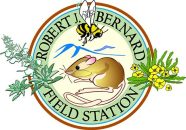Capell, Warren (1992)
Colony-Level Optimal Foraging in the Harvester Ant, Pogonomyrmex californicus: Does Recruitment Behavior Have an Associated Cost? Bachelor of Arts, Pomona College, Biology.
Advisor: Paulette Bierzychudek.
Optimal foraging theories have been extremely useful to behavioral ecologists in predicting how an individually foraging organism will behave; however, the theories do not consider the capabilities of complex superorganisms, such as social insect colonies, which have independently moving units, but which behave as a single organism. The mobilization and allocation of workers to food patches in harvester ants is accomplished through chemical recruitment. While recruitment behavior is clearly advantageous to a colony, it may also have an associated cost; a colony which is foraging at a food patch may temporarily suspend efforts to search the environment for other, potentially more profitable, food patches. A failure to control the food sites in a colony’s environment could constitute a significant loss of potential resources to the colony but so far this possible cost has not been explored. In this research, food sources were presented to a colony of harvester ants, Pogonomyrmex californicus, under different conditions in order to assess whether the commitment of recruiting to a specific food patch has an adverse effect on either the colony’s discovery time or foraging buildup at a new food source introduced into the environment. The results were ambiguous and seem to have been obscured by both a patch-position bias and a specific satiation-type effect; nevertheless, there is some evidence that a cost of recruitment may exist with respect to the foraging buildup at a new food site. Limitations of the optimal foraging models, as applied to superorganisms, are also discussed.
